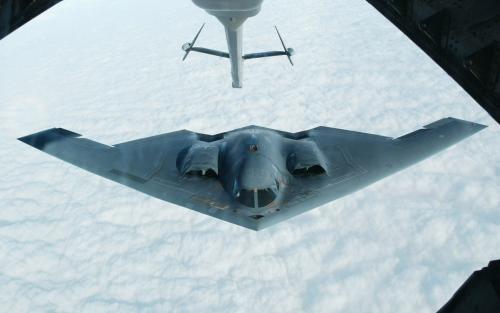Three years ago, in response to the terrorist attacks of September 11, 2001, the Bush Administration launched what is now known as the Freedom Agenda, an ambitious policy to improve the long-term stability of Arab states and reduce the appeal of extremist ideology by advancing democratic transformation in the region. This new strategy represented a major shift in the traditional U.S. foreign policy approach to the Middle East, and has evoked varied reactions ranging from enthusiasm to ambivalence to outright hostility. Only three years on, the Freedom Agenda is facing a backlash from critics concerned that Arab democratization might not work out in the United States’ favor. Elections in Egypt, Iraq, Lebanon and the Palestinian territories in 2005 and 2006 brought success to groups with radical and—in some cases—anti-American views, evoking responses from the U.S. government that called America’s commitment to democratization into question. Can President George W. Bush’s bold democracy drive in the Middle East be sustained in the face of apparent setbacks like those in Egypt and Lebanon? Will the Freedom Agenda, described by its authors as a generational commitment, survive the end of Bush’s final term in office?
This Saban Center Analysis Paper will assess what the Bush Administration’s Freedom Agenda has accomplished in its first few years, and how well the policy shift it represents has become embedded in the institutions and operation of U.S. foreign policy. In implementing the Freedom Agenda, the U.S. government has deployed multiple tools of foreign policy, including the presidential bully pulpit and diplomatic pressure. This paper will focus on the policy architecture in place to promote the Freedom Agenda, laying out the funding mechanisms and programmatic structures of three major initiatives: the Middle East Free Trade Area Initiative; the Broader Middle East and North Africa Initiative; and democracy assistance programs including those managed by the Middle East Partnership Initiative, the State Department’s Bureau of Democracy, Human Rights and Labor and the United States Agency for International Development.
U.S. democracy assistance to the Middle East has increased considerably in recent years, but diplomatic efforts to support democratic development have lagged behind. However, the ultimate success of the United States’ democracy promotion effort will rest in large part on the degree to which the Administration is able to build effective institutions to advance democracy that will outlast President Bush’s term in office. Thus far, the Middle East Free Trade Area Initiative and the Broader Middle East and North Africa Initiative both present only limited means to achieve that goal.
The Middle East Partnership Initiative was created in December 2002 as the flagship U.S. program to advance Arab reform. While total Middle East Partnership Initiative funding has remained relatively stable, the allocation of funds has changed significantly over time, as the Administration has focused further on political reform and programs that aid in the long-term processes of social and political institution-building. Through these shifts in programming and through building its own organizational structure, the Middle East Partnership Initiative has improved its ability to work with local Arab actors and worked to influence other aspects of U.S. policy that affect the environment for Arab reform.
The major barrier to effective U.S. support for Arab civil society at present is not the Middle East Partnership Initiative’s internal capacity, but the hostility of autocratic Arab governments to any greater independence or activism in the nongovernmental sector. To preserve recent gains by the non-governmental sector and ensure that alternatives to Islamist political parties have the chance to establish themselves and grow, the U.S. government should frontally address with its Arab government partners the imperative for improved freedom of association. The Middle East Partnership Initiative should work closely with U.S. embassy staffs and should receive firm diplomatic support for such efforts to be effective. A further challenge for the Middle East Partnership Initiative and other approaches to democracy assistance is to focus on programs that will affect the prospects for meaningful, long-term political change, despite constant pressure to fund projects that produce short-term, measurable results or public relations opportunities. Empowering local actors and facilitating local coalition-building often means avoiding the spotlight and minimizing the U.S. imprint on projects supported by the Middle East Partnership Initiative. It also requires that the Middle East Partnership Initiative identify concrete milestones and opportunities for interim progress on long-term issues like the advancement of political liberties. The U.S. government should follow through on its declared realization that democracy promotion in the Middle East is a long, difficult process that will not produce its fruits during this administration.
It is clear that the Bush Administration’s “forward strategy of freedom,” and its flagship program, the Middle East Partnership Initiative, have made significant gains since first announced three years ago. Through a large increase in funding over time and improved attention at higher levels of the government, U.S. democracy assistance has managed to make some headway in the Middle East and at home, placing freedom closer to the top of the Administration’s foreign policy agenda in the region. However, the U.S. democracy promotion program in the Middle East faces significant challenges over the next two years if it is to remain a relevant part of U.S. foreign policy into the next administration.
To institutionalize the Freedom Agenda for long-term success, the democracy promotion strategy should:
- be tailored to country-specific circumstances;
- enjoy close and consistent support from ambassadors in the field as well as at the highest levels of the State Department and White House;
- resist short-term exigencies, including public diplomacy and strategic considerations, that tend to erode democracy promotion efforts over time; and,
- support the social and institutional changes in Arab states that will promote the long-term expansion of freedom and political accountability.
Developing such a strategy requires the Administration to resolve difficult but unavoidable trade-offs among short-term and long-term goals, and between democracy promotion and other strategic U.S. interests. It also requires improved policy coherence across the U.S. government to ensure that no mixed messages are sent to recalcitrant regional rulers. Only if the Bush Administration can settle these questions will the Freedom Agenda outlast the next presidential election. And only when the Freedom Agenda develops staying power will it acquire the necessary credibility with leaders and reformers in the Arab world to lay the foundation for substantive progress in political freedom in years to come.
The Brookings Institution is committed to quality, independence, and impact.
We are supported by a diverse array of funders. In line with our values and policies, each Brookings publication represents the sole views of its author(s).



